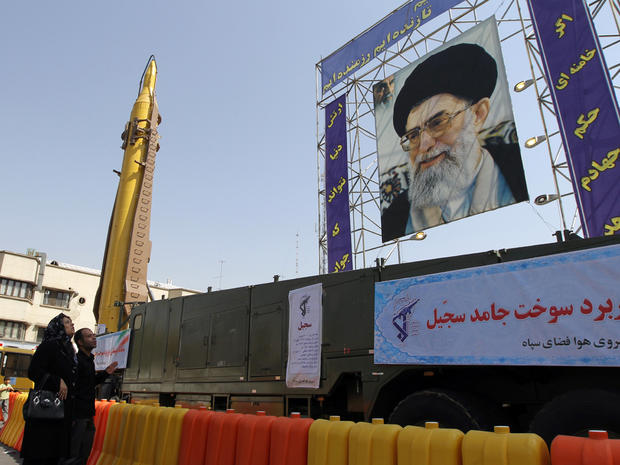Europe moves toward oil embargo against Iran
While Iran and the U.S. talk tough over naval activity in the Persian Gulf, European Union leaders have decided to join the U.S. in imposing increasingly harsh sanctions against the Islamic republic over what many assume is a rapidly-developing nuclear weapons program there.
At an E.U. ministers meeting in late January, diplomats are expected to announce plans for an embargo against Iranian crude oil, according to the BBC.
The embargo would hit Iran much harder than the current round of sanctions against it imposed by mostly the U.S. and Europe. The EU currently accounts for around 17 percent of Iranian oil exports, according to the BBC, and the Iranian state gets more than half of its revenue through the export of crude oil.
In order to avoid mass disruptions in the world oil supply, Europe's embargo is expected to be rolled out in stages, if implemented, The New York Times reports.
Iran warns U.S. to back off from Persian GulfVideo: Iran continues threats against oil market
U.S.: Warships will sail despite Iran's threats
For some time now, the West has been trying to come up with different ways to get Iran to stop enriching uranium and give up its nuclear program, which they believed is intended for bomb building. Iran, for its part, insists their nuclear program is solely for producing a civilian power supply.
Iran has not responded quietly to the tough sanctions against it. It has threatened the American Navy and crucial shipping routes in the Persian Gulf, test-fired long-range missiles, and claimed it has already enriched its first nuclear fuel rod.
Iran's leaders have also recently indicated a willingness to return to the negotiating table over its nuclear program, although many foreign leaders believe that is just a stall tactic designed to give them more time to complete the creation of a nuclear weapon.
The Times reports that the Obama administration called Europe's move toward an oil embargo "very good news."
